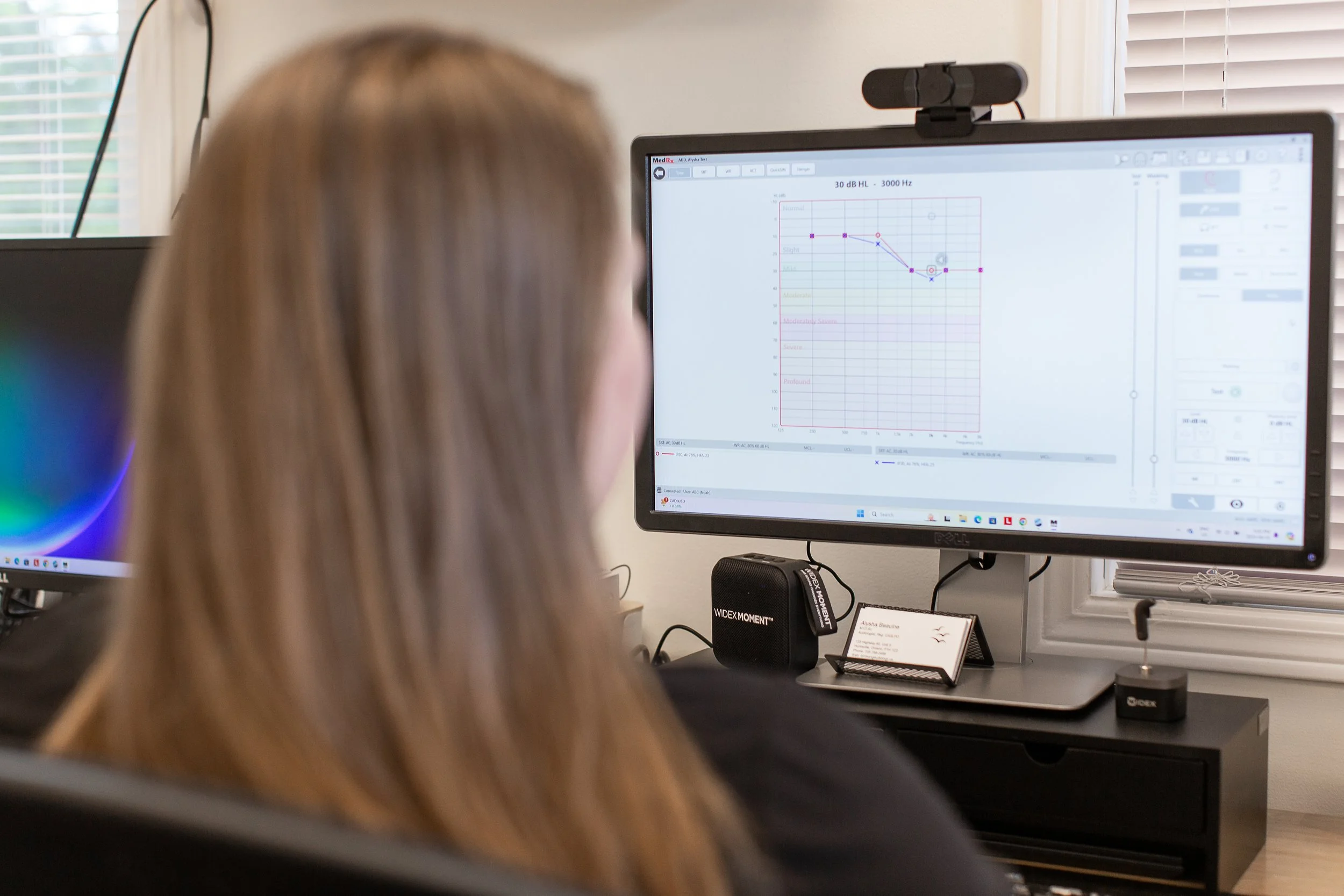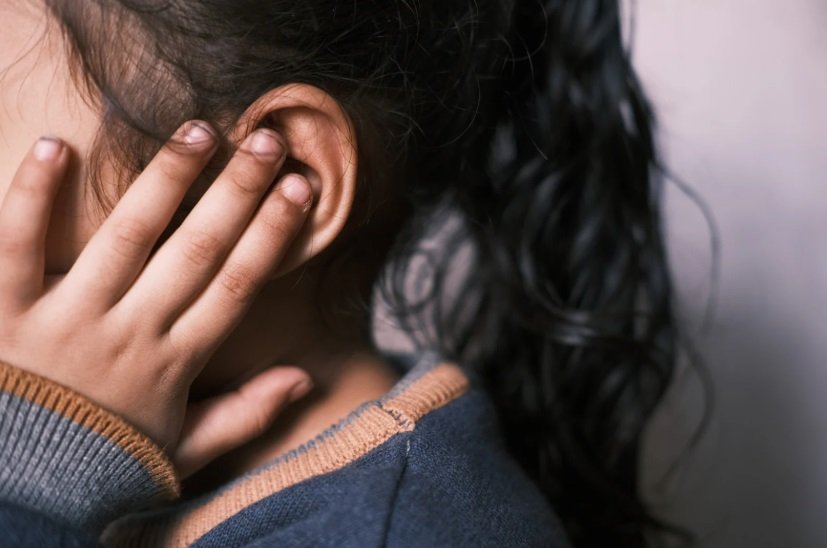Professional Hearing Assessments in Huntsville -
Get Your Hearing Tested
Are you experiencing muffled sounds, difficulty following conversations, or asking others to repeat themselves? Hearing loss is incredibly common and can happen at any stage of life. Approximately 8% of children and teenagers in Canada experience some level of hearing loss. As individuals age, the likelihood of experiencing hearing loss rises significantly—38% of adults and more than 78% of seniors are affected.
Despite how widespread hearing loss is, many individuals remain unaware that they have it. Unlike vision tests, hearing assessments aren’t often done routinely. Since hearing loss develops so gradually, it can be very challenging to detect its onset.
A comprehensive hearing test in Huntsville can provide the answers you need. At Birdsong Audiology, we offer thorough hearing assessments to detect hearing loss, evaluate your hearing health, and recommend the best solutions for your lifestyle.
Schedule your hearing evaluation and take the first step toward better hearing and improved quality of life.
Tests Used During Your Assessment
Otoscopy
We use an otoscope to visually inspect the integrity of your outer ear and eardrum. This allows us to detect any obstructions and recommend medical referrals for abnormalities. We will remove any occluding ear wax prior to testing.
Tympanometry
Tympanometry is used to assess your middle ear function. You will feel some small pressure changes and hear loud beeps. This helps identify issues such as negative middle ear pressure, fluid build-up, and eardrum perforations.
Pure-Tone Audiometry
During this part of the test, you will listen for very quiet sounds at different pitches. This shows us your hearing thresholds, the softest level that you can hear tones at different pitches.
Bone Conduction
Bone conduction testing allows us to understand the type of hearing loss. Some people have conductive hearing loss, while others have sensorineural hearing loss.
Speech Audiometry
Speech audiometry determines your ability to hear and understand words in a quiet environment.
Speech-in-Noise Test
Speech-in-noise testing determines how well you can understand speech in the presence of background noise.
Frequently Asked Questions
-
Common signs of hearing loss include asking others to repeat themselves, difficulty following conversations in noise, or needing the TV volume louder. If you notice these signs, it is time for a hearing test.
-
During your hearing assessment, our audiologist will use advanced equipment to test your hearing across a range of frequencies. The test is non-invasive, painless, and takes around 30-45 minutes.
-
Tinnitus - ringing, buzzing, roaring, or other noises in your ears or head
Mixing up words, especially in a crowded place
Feeling like other people are mumbling or muffled
Frequently asking for repetition
Asking people to speak louder or slower
Needing to turn up the volume of the TV or music
Hearing loss usually comes on slowly. If you are over the age of 60 or regularly exposed to noise, you should check your hearing every year.
-
Common causes of hearing loss include:
Impacted ear wax
Conditions of the middle ear, such as otosclerosis
Inner ear conditions, such as Ménière's disease
Ototoxic medications
Noise exposure
Head injury
Presbycusis (age-related hearing loss)
-
Certain types of hearing loss are temporary and can improve. Other kinds of hearing loss are permanent. A hearing assessment shows the type of hearing loss and can indicate whether it is temporary or permanent.
-
Hearing assessments are not covered by OHIP and are therefore paid for privately. Hearing tests are $140. Insurance plans often audiology coverage.
-
There are three types of hearing loss:
Sensorineural Hearing Loss
A sensorineural hearing loss is the most common kind of hearing loss. It can be caused by excessive noise exposure, ototoxic medications, and/or aging. This type of hearing loss occurs from damage to the inner ear and is permanent.
Conductive Hearing Loss
A conductive hearing loss occurs from dysfunction or blockage in the outer or middle ear. It can occur from excessive ear wax, middle ear issues such as fluid build-up behind the eardrum, or other middle ear conditions.
Mixed Hearing Loss
A mixed hearing loss occurs when both a sensorineural and conductive hearing loss occur at the same time. For instance, if you have ear wax blocking your hearing and an underlying age-related hearing loss, that would result in a mixed hearing loss.








